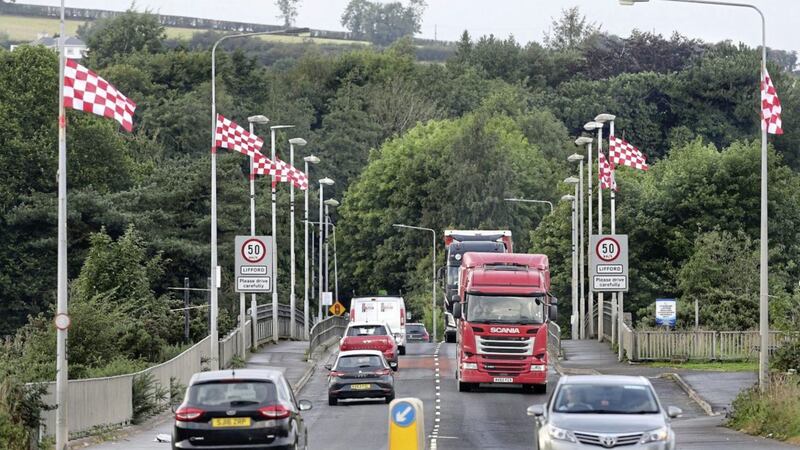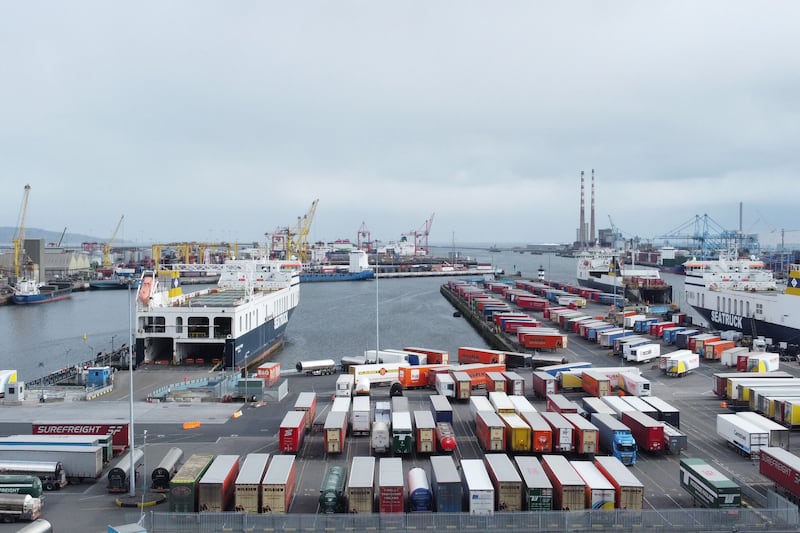THE value of goods exported across the border from Northern Ireland has grown by 60 per cent in the seven months since the protocol was introduced according to the Republic’s Central Statistics Office (CSO).
The CSO calculated that goods valued at €2.12 billion (£1.82bn) crossed the border in the first seven months of this year, €800 million (£687m) more than the same seven months in 2020.
Goods moving from the Republic into Northern Ireland increased by 45 per cent during the same period to €1.89bn (£1.63bn), an increase of €592m (£508m).
However, the CSO has revealed that it has significantly revised the value of cross border trade during 2020.
The introduction of Northern Irish VAT numbers since Brexit has resulted in trade previously counted with Great Britain data, now being separately identified.
The result is that the CSO has put the value of goods being sold from the north into the Republic during the whole of 2020 at €2.47bn (£2.12bn), some €760m (£652m) more than previously reported.
The value of goods moving north in 2020 has been revised up by €279m (£239m) to €2.37bn (£2.04bn).
Meanwhile good imported from Britain into the Republic have fallen by a third post Brexit, while exports from the Republic into GB are up 26 per cent.
The value of goods imported from Britain for the year to July was €6.3bn (£5.4bn), a drop of 32 per cent or €2.9bn (£2.5bn) compared with the same period in 2020.
Jarlath O'Keefe from Grant Thornton Ireland said: "The July CSO figures for the import and export of goods have confirmed that there has been a significant increase in cross border trade on the island of Ireland in 2021 following Brexit.
"This is due in part to businesses adjusting their supply chains to avoid the administrative burden associated with importing goods from Britain."








